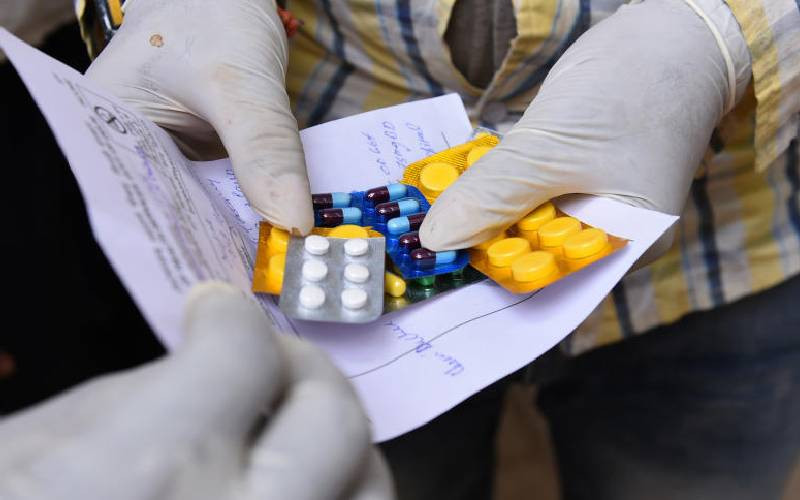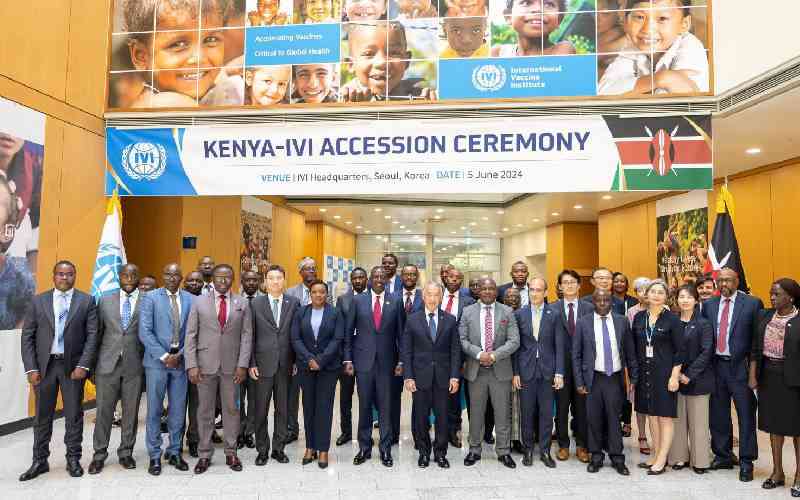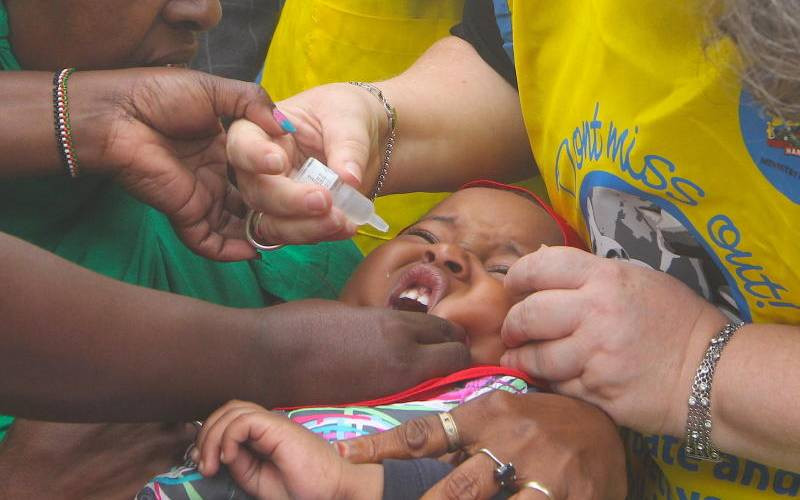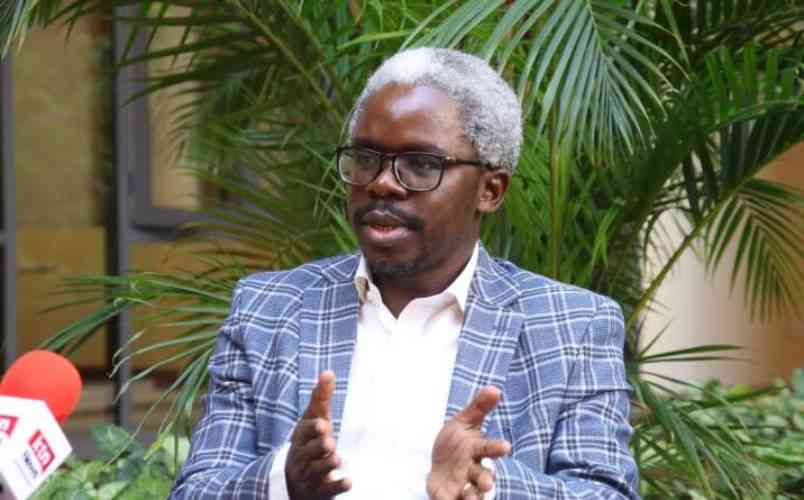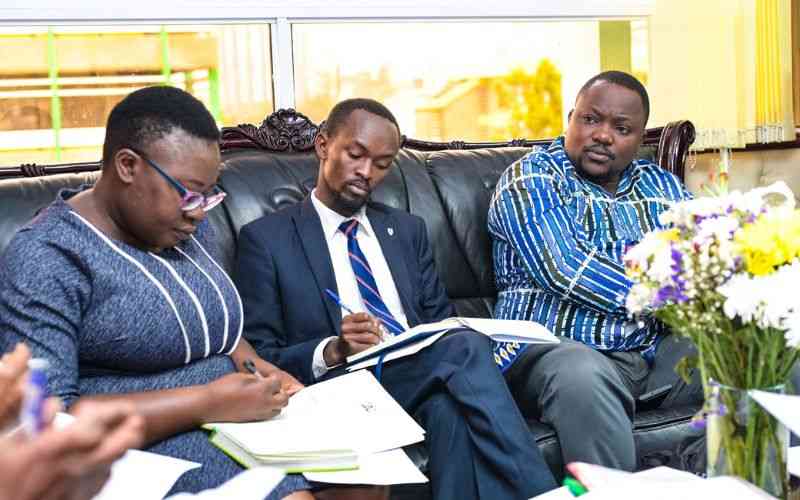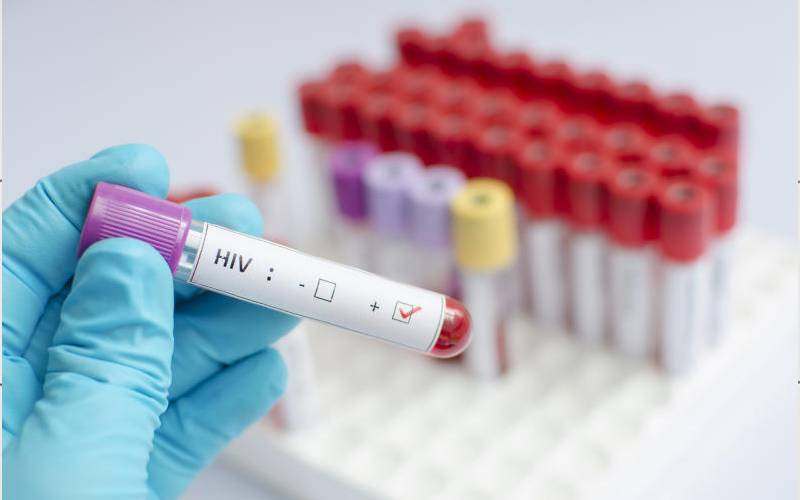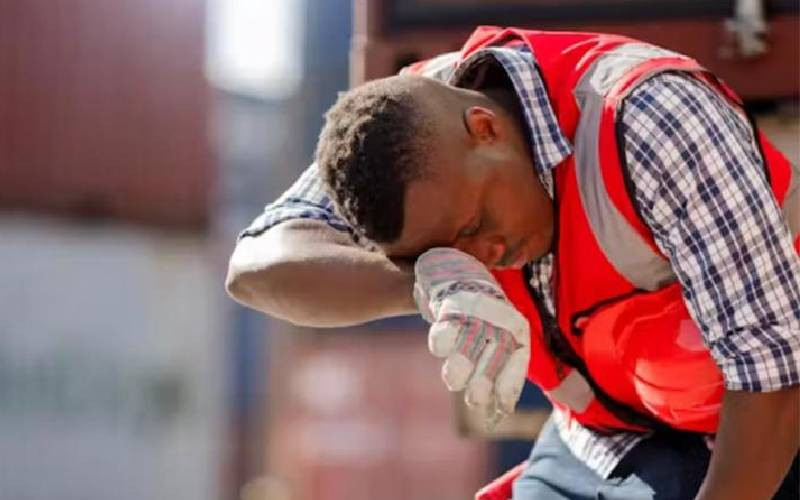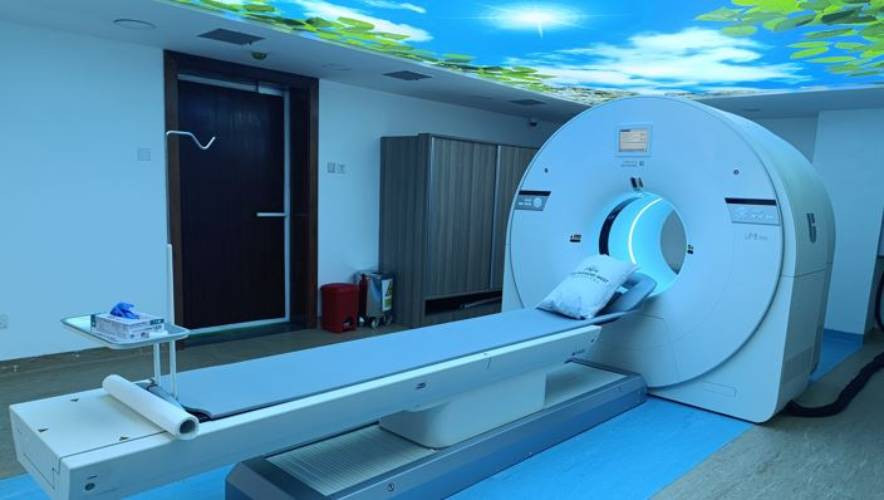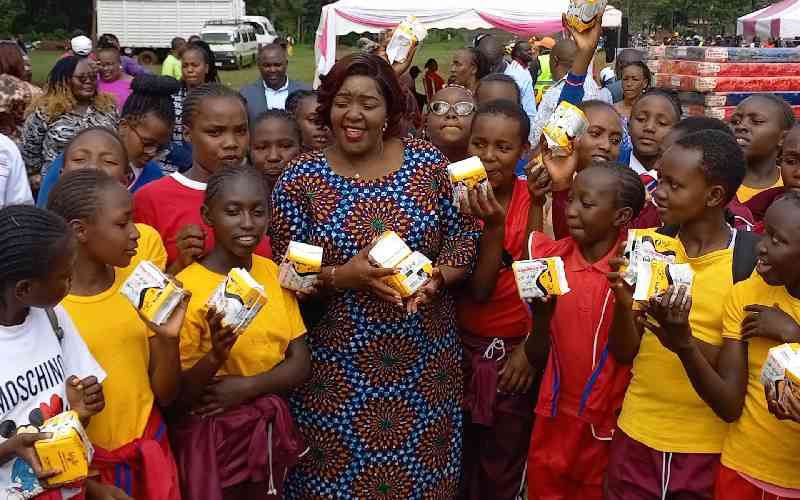
Rahab Keranga, a 52-year-old woman in Kiambu County walked at the age of 7 months. It was such a joy to her mother to see her young daughter running and playing with her elder siblings.
Several months later, when Rahab hit one and a half years, she began getting paralysed, and could no longer walk, or even play with her friends and siblings. She was diagnosed with polio.
Her mother was devastated; her father believed Rahab was a curse to the family because nobody else in his family had such a condition.
Now a polio immunisation ambassador, Rahab narrates to Health & Science what she was told of her history.
“I needed therapy at least twice a week and so my mother who was pregnant at that time had to leave her matrimonial home and began living in the streets of Nairobi just to make sure I got to attend those therapy sessions,” says Rahab.
She explains that was because her mother did not have enough money for transport from Gatundu to Nairobi for the therapy sessions each week and also sought to protect her daughter from the villagers who believed having paralysis was an abomination to the family.
Rahab got polio due to lack of immunisation because according to her, there was very little or no sensitisation about immunisation against polio.
- WHO points to risks facing anti-Polio gains in Pakistan, Afghanistan
- Prof Stella Anyangwe: Polio ambassador who won't stop until disease is eradicated
- CS blames vaccines shortage on outstanding debt
- Government allocates Sh1.2b to cure vaccine shortage
Keep Reading
At that time, joining school was difficult for her because it meant she had to be carried to and from school, and her mother, who was a casual labourer, could not take her. Eventually, she joined Joy Town Special School for the Physically Challenged in Thika.
She narrates that going through a special school taught her that she was not alone and that, for her to be accepted by others, she had to love and accept herself. She says the experience made her stronger.
“I always tell people to make sure their children get all their immunisations as directed by the government because this is not something you can reverse. If a child gets the polio virus, the child will either get paralysed or die,” says Rahab who is also the president of Kiambu County Disability Network.
She adds that she has constructed a house to honour her mother, ensuring she is well-fed and her every need is taken care of. She says she is grateful to her mother for standing up for her when her family and villagers shunned her -- to the point of leaving her matrimonial home just to make sure her daughter lived.
According to Dr David Githanga a paediatrician, polio is a neurological disease that affects the nervous system caused by three types of viruses, serotypes 1,2, and 3 that affect human beings only.
It is transmitted through the oral route by ingesting water that has human faeces from an infected person although it can also be rarely transmitted through respiratory droplets.
Dr Githanga also explains that polio type 1 is responsible for causing most outbreaks, Type 2 has been eradicated, and type 3 is more confined within a certain area.
“The vaccine that we have been giving is bivalent because we are dealing with two types; Type 1 and 3, and they can be live or killed,” explains Dr Githanga.
The live vaccine means there is a live virus that has been attenuated and helps the body to produce the antibodies against polio without giving the person the disease while the killed vaccine means it doesn’t have any live organism. And is usually given as an injection.
Sometimes there is the vaccine-derived virus which comes about when the live polio vaccine changes and causes a disease in the person.
In Kenya, although there have been frequent polio campaigns being run by the government, there have been people who are unvaccinated coming in from countries such as Somalia and South Sudan where polio has not yet been eradicated.
According to Dr Githanga, four pillars will help in the eradication of polio in the country.
Every child must be reached with primary immunization which includes the BGC vaccine and polio at birth, at 6, 10 and 14 weeks and get a booster at one and a half years and also at 5 and 10 years. There should also be effective and active surveillance measures such as samples of water especially in the entry points, consider checking a person who has suffered paralysis without an obvious reason to be able to eradicate polio.
The country should have very high-quality vaccination efforts such as supplementary immunisation activities.
This is not the routine immunisation but where the government moves from house to house announcing that they are running a polio campaign, targeting people who may have missed the vaccination such as those in refugee camps.
Further, there should be a containment strategy such that when one is vaccinated, then the government pulls out the live polio vaccine and begins offering the killed polio vaccine to prevent instances of vaccine-derived poliovirus.
Dr Githanga adds that immunization offered in Kenya against polio is safe and effective, urging parents to ensure all children get it to eradicate polio from the country.
“Babies are born without immunity and will only get it from their mothers, getting an infection or from immunisations and it is therefore important to ensure all of them get vaccinated against polio.”
Centre for Behavior Change and Communication (CBCC) in partnership with UNICEF have been engaging different communities through different community radio stations to support the uptake of routine child vaccinations.
Key among the vaccines according to the Ministry of Health National Vaccine and Immunization Program is BCG for Tuberculosis, OPV and IPV for Poliomyelitis,Rotavirus for rotavirus and diarrhoea, DPT for diphtheria, whooping cough and tetatus, measles, rubella and HPV for cervical cancer among others.
This campaign has been targeting caregivers and teenagers in 31 counties including Mombasa, Lamu, Taita Taveta, Meru, Tharaka Nithi, Embu, Kitui, Machakos, Makueni, Nyandarua and Nyeri among others.
 The Standard Group Plc is a multi-media organization with investments in media platforms spanning newspaper print
operations, television, radio broadcasting, digital and online services. The Standard Group is recognized as a
leading multi-media house in Kenya with a key influence in matters of national and international interest.
The Standard Group Plc is a multi-media organization with investments in media platforms spanning newspaper print
operations, television, radio broadcasting, digital and online services. The Standard Group is recognized as a
leading multi-media house in Kenya with a key influence in matters of national and international interest.

